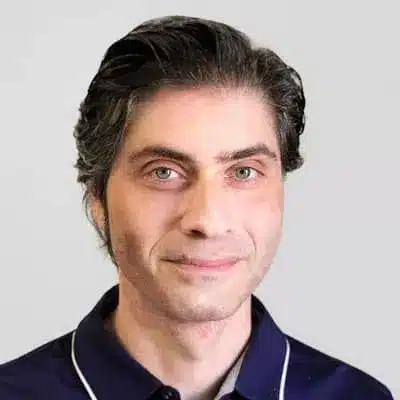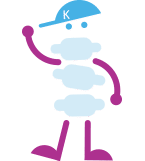Team Kidcrew
Chiropractic Resources
IMPORTANT: We ask that your physician sends Kidcrew a referral, prior to
booking a lactation consultation (thank-you!).
OTHER RESOURCE PAGES
CHIROPODY | CHIROPRACTIC | NATUROPATHY | OCCUPATIONAL THERAPY | PARENTING | PHYSIOTHERAPY | THERAPY
Chiropractic for Kids at Kidcrew
Let’s review the options for pediatric chiropractic care at Kidcrew and how chiropractic treatment can help your child.
1. What are the most common challenges you see? What can chiropractic care help with?
- Concussion screening, assessment, treatment
- Symptomatic hits to the head/whiplash
- Pre/postnatal mamas
- Tongue/Lip tie
- Colic and excessive crying
- Breastfeeding bodywork for mom and baby
- Pelvic floor issues
- Headaches/Neck pain
- Sensitivity to light or sounds
- Reflexes
- Milestone development
- Sports-related injuries
- Growing pains
- Walking and Gait
- Child’s immune system
- Overall, the child’s health.
2. What are the modalities of care we use?
The chiropractic profession uses a variety of modalities to treat children with a variety of health issues. In our treatment sessions, we provide physical therapy to treat babies and older children of all ages. We use scientific evidence and treat kids as If they were our children.
Hands-on assessment
- Calming of the nervous system and treating nerve irritation- reducing your or your little one’s primitive reaction to pain and discomfort and decreasing back pain, poor posture, and improving their general health.
- Complete concussion and spinal cord trauma management evidence-based concussion approach
- Acupuncture/cupping
- Fascial-based movement rehab
- Hands-on treatment- soft tissue, joint work, fascial stretching, gentle chiropractic adjustments (spinal manipulation is not recommended in children but rather uses gentle adjustments to help the child’s condition).
- Education, Education, Education! All symptoms are the body’s way of trying to send you a message. Parents’ best way to address and assess at home is to understand what your little one’s body and symptoms are trying to tell you, mainly if they can’t talk yet!
- Chiropractic research in children
3. What are the main ways we improve:
Breastfeeding support for mama:
- Soft tissue release, bodywork post-birth trauma.
- Pain relief and Postural exercise/stretch
- Props to ease the postural stress
- Acupuncture
- Cupping therapy and other fascial-based releases for childhood issues
- Education and tips for sustained relief.
- Stress reduction
Breastfeeding support for baby:
Assessment is essential with little ones to determine why they might be having issues.
Chiropractors develop a treatment plan with children in mind based on their spinal misalignments, tense muscles, and unique health concerns. Some common problems usually respond well to treatment using the following support:
Baby-specific Bodywork, tongue/lip tie exercises, spinal assessment for any digestive issues, Education on baby’s cues, props/supports, feeding modifications, and craniosacral therapy techniques.
Acupressure (without needles),
Acupuncture (with needles), and other nervous system-based approaches to calm any fight or flight your little one may be experiencing due to chronic breastfeeding issues or even post-concussion.
Concussion and Nervous System Shock:
Concussion research is going through a significant paradigm shift at this very moment. No longer is “Rest in the Dark” the proper approach. Instead, evidence shows that treating the concussion appropriately, right from the start, is the BEST way to minimize long-term symptoms, avoid making it worse, and get you back to your regular activity as soon as possible. Therefore, if you suspect a concussion, you should find an evidence-based trained practitioner as quickly as possible to make sure you’re treating it most effectively!
Chiropractic Care Resources
Dr. Deborah Mechanic, Chiropractor Yoga Instructor (pre/postnatal/pediatric-focused)- Concussion concerns? Headaches, neck, or mouth/jaw pain for you or baby? Exercises to rehab the pelvic floor, breastfeeding-related aches and pains, bodywork? Are you interested in yoga?
Growco Rehab- Find a postpartum rehab specialist in your area. For the pelvic floor, deep core, and breastfeeding support and rehab.
Complete Concussion Management Concussion Handbook. For up-to-date resources on how to handle a hit to the head.
Complete Concussion Management Concussion Handbook
Great Lakes Birth and Family Services. For everything from a Doula to Sleep Consulting and Night Nurses:
Great Lakes and Family Website
Baby-Led Sleep Consulting. For a gentle approach to sleep training:
Glow Sleep Services. For a structured approach to sleep, billable under Social work.
Arm Yourself Dietetics- Picky eaters? Allergens? Want to build a healthy relationship with food for your family?
Your Questions About Chiropractic Health
blank
– blank –
How long will it take to see me for chiropractic health care?
What are the most common things we see? When should I see a chiropractor?
Children usually see a chiropractor for the following:
- Head/Neck/Jaw pain (no spinal manipulation is required
- Concussion and other nervous system challenges
- Tongue-tie/ Lip tie
- Retained primitive reflexes
- Smooth Milestone development
- Breastfeeding aches, pains, and posture
- Pelvic floor rehab
- Deep core strengthening
- Aches and pains related to a growing and changing body (growing pains, crawling/walking, neck ranges of motion, baby development).
- Immune system support
- Tips for maintaining a healthy lifestyle
How long are appointments for chiropractic care?
Chiropractic treatment initial appointments are 40 minutes in length. Patients are usually seen for follow-up visits that are 20 minutes in length.
Some patients may require more time, and this will be discussed as necessary.
Will I need to see another clinician as well?
Referral to other clinicians is patient-dependent. Many patients see marked improvement following their visits and the resolution of their symptoms. In some cases, patients will benefit from a multidisciplinary approach. Dr. Mechanic works within a network of some of the best pediatric and pregnancy/postpartum specialists and, if necessary, will make an appropriate referral after a comprehensive assessment and discussing all options with you at your visit.
How often do I need to come for chiropractic care?
Follow-up visits are booked based on individual needs. As improvements are seen, treatment is modified to accommodate the improvements. Ideally, treatment frequency will reduce as symptoms improve, and treatment is not a lifelong commitment. Therefore, children do not likely need ongoing chiropractic care.
What can I expect from a visit for chiropractic care?
Dr. Mechanic will conduct an extensive health history including but not limited to pregnancy, delivery, baby’s firsts, symptoms, baby’s temperament, general lifestyle, and more. This will give her a good view of what may be contributing, as well as the current state of your little one’s situation. From here, Dr. Mechanic will conduct a focused examination based on her history and tease out where your little one may be experiencing issues, restrictions, and limitations. This is followed by a discussion with the accompanying primary caregiver about treatment options, expected results, and an opportunity to ask any questions.
Chiropractic treatment will happen after all questions and concerns have been addressed. Medication is not prescribed. Spinal manipulation is rarely performed. You will see improved function as treatments are provided to correct poor posture and improve health.
What do you do? Can you do that?
Chiropractors are Doctors who undergo eight years of medical training to focus on the structural build of your body. We specialize in anatomy- especially the joints, muscles, fascia, biomechanics and physiology, and physics of how it all comes together. So that gives us some pretty special tools to help address all kinds of issues. And that’s just the start.
Dr. Mechanic uses her out-of-the-box thinking, her hands, cups, needles, and her knowledge of movement and the human body to find precisely where the problem is and address it. Every patient is unique, and chiropractic care treatments are tailored based on the assessment and presentation. There is no “one size fits all” for treatment.
Are you covered by insurance?
Chiropractic care is covered under extended health benefits for many parents. Check with your insurance provider if you have any questions.
































